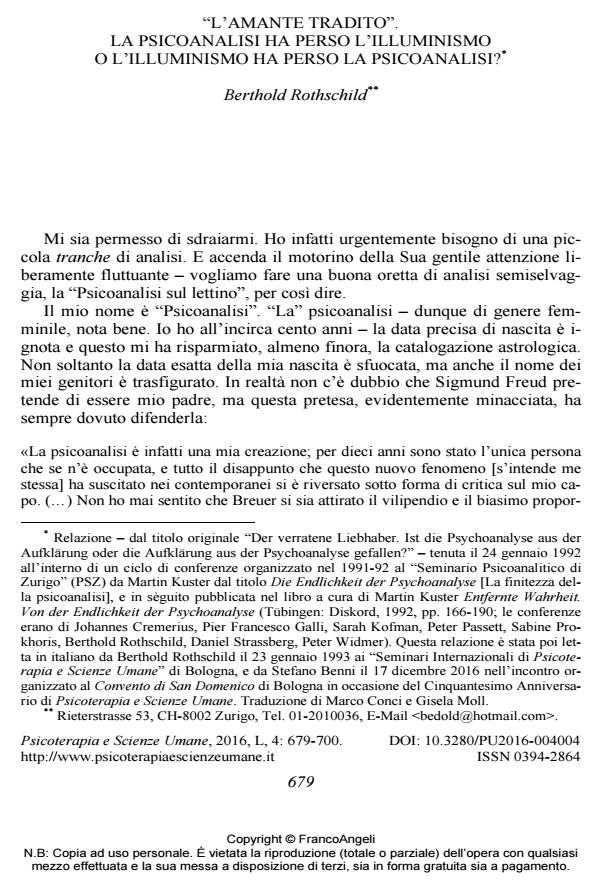The "betrayed lover": Did psychoanalysis lose the Enlightenment or did the Enlightenment lose psychoanalysis? (1992).
Journal title PSICOTERAPIA E SCIENZE UMANE
Author/s Berthold Rothschild
Publishing Year 2016 Issue 2016/4
Language Italian Pages 22 P. 679-700 File size 96 KB
DOI 10.3280/PU2016-004004
DOI is like a bar code for intellectual property: to have more infomation
click here
Below, you can see the article first page
If you want to buy this article in PDF format, you can do it, following the instructions to buy download credits

FrancoAngeli is member of Publishers International Linking Association, Inc (PILA), a not-for-profit association which run the CrossRef service enabling links to and from online scholarly content.
In this fiction, Sigmund Freud’s daughter, here named "Psychoanalysis", wants to undergo another tranche of analysis and lays on the couch. She claims of suffering of an "identity crisis", is not sure of who her loyal lovers are and of the correct interpretation of her father’s papers. On the one hand, she thinks that Freud believed that psychoanalysis was a sort of "no man’s land", borderline; on the other, Freud conceived psychoanalysis as part of the Enlightenment project (Aufklärung). Freud’s daughter, always on the couch, wonders if the Enlightenment project is still valid, also in its psychoanalytic version. Far from Kant’s definition and criticized by the Frankfurt School (the Dialectic of Enlightenment by Horkheimer and Adorno), Enlightenment entered into a crisis, as shown by phenomena such as German Fascism and Holocaust, the demise of Socialist project and of the utopias, ecological crisis, "postmodern" critique, the return of religion in a globalized world.
Keywords: History of psychoanalysis, epistemology, philosophy, Freudian left, Enlightenment
Berthold Rothschild, "L’amante tradito". La psicoanalisi ha perso l’illuminismo o l’illuminismo ha perso la psicoanalisi? in "PSICOTERAPIA E SCIENZE UMANE" 4/2016, pp 679-700, DOI: 10.3280/PU2016-004004